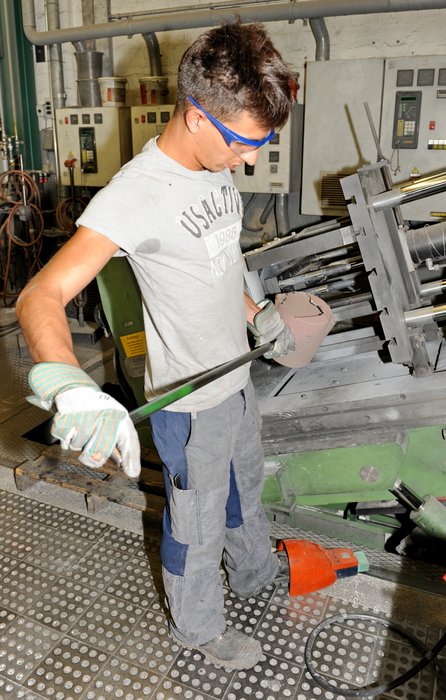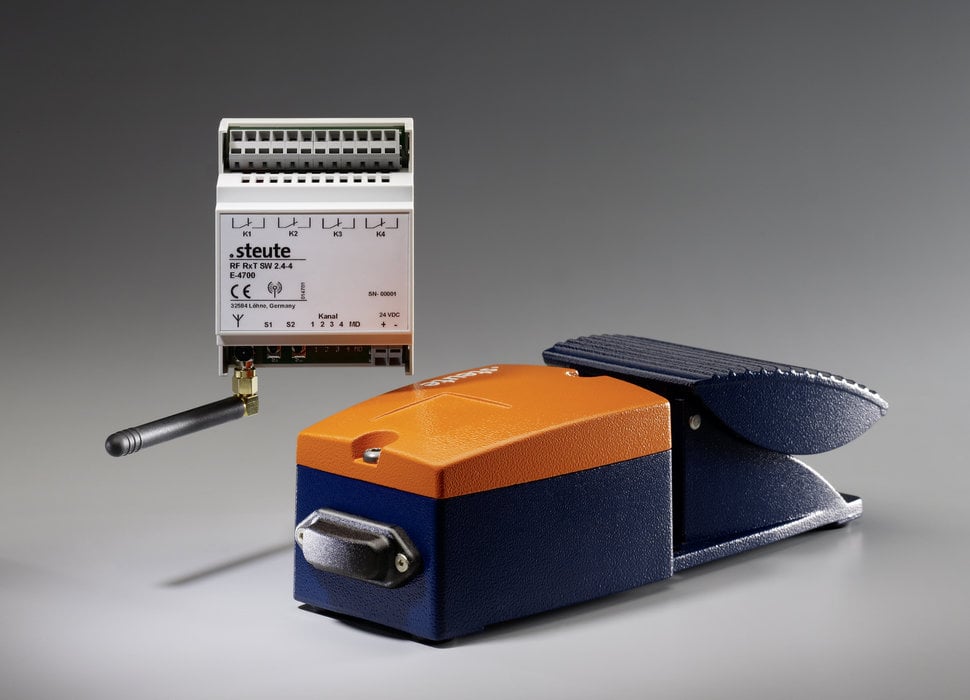www.industryemea.com
18
'15
Written on Modified on
Steute‘s wireless safety foot switches have been chosen by Thalmann Maschinenbau AG metal foundry
To avoid failures during routine work due to hot metal splashes that damage the power or signal cables, a wireless safety foot switch using Steute “sWave 2.4 GHZ-safe” technology has been chosen. It greatly increases reliability while being easy to install and flexible.

Foot switches are standard control elements in many metalworking enterprises. Operators have both hands free to start or stop a machine or drive. Because foot switches can be placed anywhere on the floor, they also offer a high degree of ergonomic comfort.
Foot switch advantages
It is precisely these advantages which a light metal foundry in Switzerland is currently exploiting. It manufactures high-quality cast aluminium parts, amongst other things for electrotechnology, railroad engineering and machine building. Machinery at the foundry includes tiltable gravity casting machines which were previously operated via cabled safety foot switches. These machines perform dangerous (tilting) movements during casting.
The search for an alternative
The switches repeatedly failed during routine work because hot metal splashes damaged the power or signal cables. In their search for an alternative, the technical management at the foundry came across a wireless safety foot switch which had just come onto the market and which communicated with the evaluating unit in the control cabinet via a safe wireless protocol.
New: wireless protocol for safety applications
This series of switchgear is the first to work with the safe wireless protocol “sWave® 2.4 GHz-safe” developed by steute. This wireless system uses the physical layer of standard IEEE 802.15.1. Due to a high level of reliability which is guaranteed, amongst other things, by the FHSS (“Frequency Hopping Spread Spectrum”) procedure on 79 channels and by the adaptive frequency hopping procedure, as well as to a very good coexistence with other wireless systems, it is especially suited to use in rough industrial environments. The transmitter/receiver system – as is to be expected from safety applications – is fundamentally designed as a two-channel system.
Several safe foot switches can work in parallel within one radio range. The power supply is battery-based, creating the conditions necessary for a highly accessible bidirectional radio connection. The system, consisting of the wireless foot switch and the receiver unit, is EC type examination tested and in Performance Level (PL) d according to ISO EN 13849-1, as well as Safety Integrated Level (SIL) 2 according to IEC 62061.
“Misappropriation” for new technology
The wireless safety foot switches were originally developed for special operations, such as the “setting mode” or “process monitoring mode”. Here the machines can still be operated in compliance with the standards, with opened guard doors and reduced speed, as long as the user actuates the pedal and keeps it depressed in the middle position.
A test at the foundry quickly showed, however, that the safety foot switch could just as effectively be used in this application. By doing away with the cable connection, the lifespan of the foot switch in this environment increases significantly. Ergonomic comfort is also improved because there is no cable to get in the way.
All steute foot switches are renowned for their ergonomic design. They are also extremely stable once positioned, which for this type of switch is an important criterion for ergonomic and intuitive operation. The metal housing can withstand a high degree of mechanical wear and tear and, like the high-quality switching inserts, makes for a long lifespan, even in rough ambient conditions – in foundries and elsewhere.


